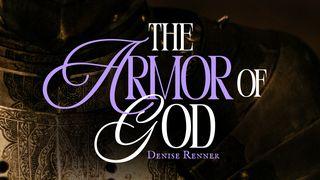Journey Through John: Upper Room DiscourseSample

This new section, called “The Upper Room Discourse”, records the words of Jesus to His disciples immediately prior to His death. It begins with what many scholars consider an “acted parable” (John 13:1–17) and ends with Jesus’ prayer for His people (17:1–26).
We are told in the introduction to this acted parable (vv. 1–3):
• Jesus’ time to leave the world has now come (see John 12:23).
• He is about to show His own how much He loves them.
• He knows that Satan will use Judas to betray Him.
• He knows all things are subject to Him, that He has come from God and is going to God.
Three things follow:
1. The act of love—Jesus washes the disciples’ feet (vv. 4–5).
2. This act anticipates something greater—Jesus offering His life on the cross as complete cleansing for our sin (vv. 6–11).
3. This act is an example for all believers (vv. 12–17).
In this passage, Jesus first shows us how much we are loved (vv. 4–5); second, how we are to relate to God (vv. 6–11); and third, how we are to relate to fellow believers (vv. 12–17).
How much are we loved? Jesus, taking on the lowliest servant’s role, washes and dries the dirty feet of the disciples. What none of them would volunteer to do for another, Jesus does; He even washes the feet of the betrayer, Judas.
How are we to relate to God? Peter protests—he believes the lesser should be serving the greater. Jesus responds: “You don’t understand now, you will later.” Peter still refuses, so Jesus says, “If I don’t, you have no fellowship with me” (see v. 8).
Peter is thinking of mere foot washing, but Jesus’ action anticipates the greater love and the act of cleansing that is to come through His sacrifice—laying aside His eternal rights, taking on human flesh, He will go to the cross and give His life in death (see Philippians 2:6–11).
Peter now impetuously asks to be washed completely. “No,” replies Jesus, “if you’ve had a bath and go for a walk, you only need to wash your feet afterwards. You’ve all had a bath, except Judas.” He had his feet washed but was not clean.
Like the disciples, we sinners are cleansed through the work of Jesus on the cross, and continue to draw cleansing via confession and the atoning sacrifice of Christ (see 1 John 1:8–2:2).
How are we to relate to one another? Our Lord has left us an example of humble service to one another. To use Paul’s words, we are to put the interests of one another ahead of our own (Philippians 2:4) and carry each other’s burdens (Galatians 6:2). Paul calls this the law of Christ (1 Corinthians 9:21). Jesus says you will be blessed by not merely knowing this, but doing it (v. 17).
ThinkThrough:
The cross shows us the enormity of Christ’s love for us. Come to Him now in confession and gratitude.
How can you follow Jesus’ example of humble service today? Whose burden can you help to carry?
Scripture
About this Plan

The author of this gospel is the apostle John, one of the three "inner circle" disciples: Peter, James and John. In the next 11 days this reading plan will lead you through the upper room teachings of Jesus, the night before His betrayal and death, and includes the last two "I am" statements. Join us as we reflect on the life and ministry of our Lord and Savior Jesus Christ.
More
Related plans

Our Persistent Prayer

Let's Pray About It

Chronicles: God's Faithfulness Through Our Failures | Video Devotional

BibleProject | One Story: Foundations of the Bible

The Armor of God

1 Timothy - a Brief Insight

Put Down Your Phone, Write Out a Psalm

Isaiah: Light Breaking Through Darkness | Video Devotional

Impulses for the Way: 30 Days on the Camino De Santiago
